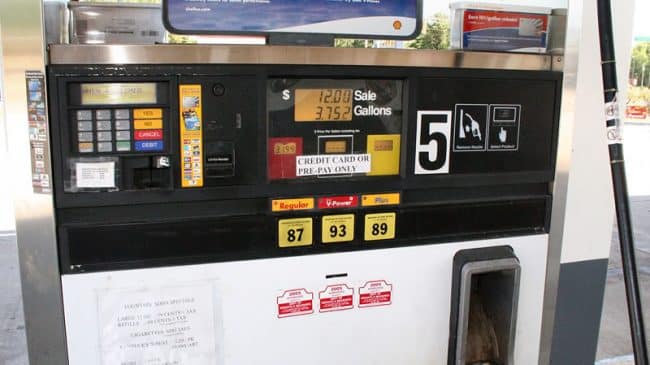A new Reason-Rupe poll reveals a major disconnect between the public and federal transportation planners. One thousand participants responded to a telephone survey and were asked their views on several issues including transportation.
Some highlights of the study:
- When asked if “the federal government needs to spend more money, less money or about the same amount of money on transportation infrastructure,” 46% answered “more.”
- When asked if “the government spends existing transportation money efficiently or inefficiently,” 73% answered “inefficiently.”
- When asked to choose a single “top priority for transportation spending,” 53% chose “repairing existing and building new Highways and streets” compared with 38% who chose “repairing existing and building new Mass transit systems, including trains, subways and buses.”
- When asked if they believed the federal gas tax should be raised from its current rate at 18.4 cents/gallon, 85% stated their opposition to raising the tax.
- When given a choice between paying a higher gas tax, tolls or “neither,” 58% preferred tolls.
These results indicate that Americans generally recognize the need for greater infrastructure investment but strongly deny that the federal government does an adequate job of investing. Even though participants are wary of an overhaul of the current system-a majority opposes replacing the gas tax with user fees-an even greater number, 17 out of every 20 American don’t want to see gas taxes raised. Yet since a strong plurality, 46%, want to see greater federal involvement in transportation, Congress should focus on maximizing the per-dollar value of infrastructure spending. Regaining the public’s confidence will require Congress to make structural improvements to funding practices and not merely borrow more money.
For one thing, Congress should consider refocusing the Highway Trust Fund (HTF) to serve its original purpose. Established in 1956, HTF was sold to the public on the basis that fuel taxes were exclusively dedicated to the Interstate highway system. In 1983, however, President Reagan reneged on this promise when he agreed to create a mass transit account in return for raising fuel taxes. As part of the HTF, the mass transit account receives 20 cents of every dollar in fuel tax revenue. Since then, Congress has virtually abandoned the “user pays user benefits” model that originally characterized the HTF: fuel taxes now go toward sidewalks, recreational trails, bike paths and other unrelated infrastructure. To supplement all these additional expenses, Congress has infused the HTF with nearly $65 billion from the General Fund since 2008. While replacing fuel taxes with true user fees such as tolls will take a huge amount of political will, a majority of Americans could support devolving responsibility for transit, bicycle and pedestrian spending to state and municipal governments in the nearer future.
Additionally, the public’s preference for tolling over fuel taxes should prompt Congress to adopt a more forward-looking stance on funding mechanisms. Several countries including New Zealand, Germany and Switzerland charge road users per-mile fees instead of per-gallon taxes. By charging vehicles according to the road-wear that they create, mileage-based user fees (MBUFs) can render existing highways virtually self-sufficient. And if traffic underperforms projections, then so will maintenance costs. The success of Oregon’s pilot program-and of smaller ones in other states-demonstrates that MBUFs are more than capable of responding to privacy and equity concerns. A study by the University of Iowa found that out of 2,561 participants told to install mileage-recording devices in their vehicles, 71% held positive views of MBUFs by the end of the study.
Devolving non-highway infrastructure funding and introducing an innovative user fee model will help Congress improve its image with its constituents. These measures retain federal involvement in modal priorities, namely, highway and road spending, while increasing the cost-effectiveness of taxpayer money. As transportation policy adapts to the unique hurdles of the 21st century, national lawmakers should implement policy for the majority of Americans and not for the special interests that, all too often, tend to control the debate.
